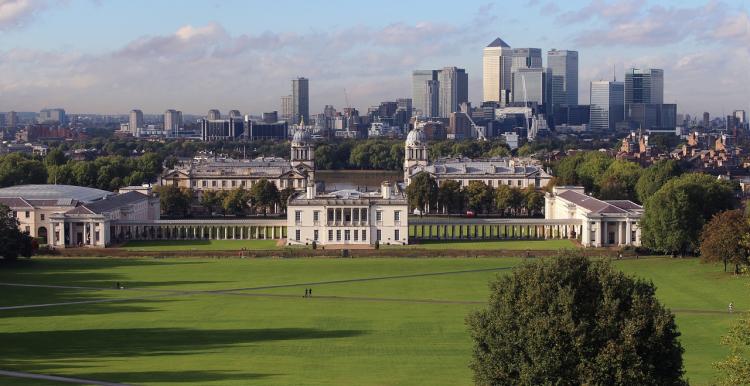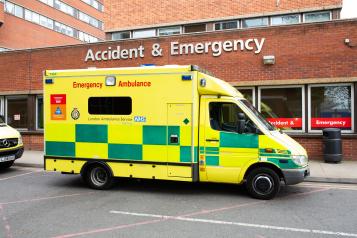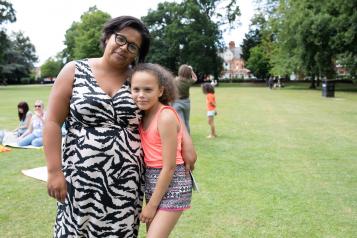New National Restrictions from 5 November

COVID-19 case numbers are rising rapidly across the whole of the UK and in other countries.
That is why, from Thursday 5 November until Wednesday 2 December, the Government is taking the following action:
- Requiring people to stay at home, except for specific purposes.
- Preventing gathering with people you do not live with, except for specific purposes.
- Closing certain businesses and venues.
These new measures have been carefully judged to achieve the maximum reduction in growth in the number of cases, preventing the NHS from being overwhelmed, whilst ensuring that schools, colleges and universities stay open and that as many people as possible continue to work.
Greenwich Community Hub
If you can’t go out and don’t have any family, friends or neighbours around to talk to or help with things like shopping or food, then contact the Greenwich Community Hub.
The Community Hub also offers advice around support for carers, digital support, mental health and wellbeing advice, access to food, helpful advice on staying warm in winter, housing and financial advice, befriending and more.
Call 0800 470 4831 to talk to a friendly advisor or request support online.
Further guidance from GOV.UK:
Stay at home
This means you must not leave or be outside of your home except for specific purposes. These include:
- for childcare or education, where this is not provided online
- for work purposes, where your place of work remains open and where you cannot work from home (including if your job involves working in other people’s homes)
- to exercise outdoors or visit an outdoor public place - with the people you live with, with your support bubble or, when on your own, with 1 person from another household (children under school age, as well as those dependent on round-the-clock care, such as those with severe disabilities, who are with their parents will not count towards the limit on two people meeting outside).
- for any medical concerns, reasons, appointments and emergencies, or to avoid or escape risk of injury or harm - such as domestic abuse
- shopping for basic necessities, for example food and medicine, which should be as infrequent as possible
- to visit members of your support bubble or provide care for vulnerable people, or as a volunteer
This list is not exhaustive and there are other limited circumstances where you may be permitted to leave or be outside of your home. These will be set out in law and further detailed guidance will be provided.
Staying safe outside the home (Social Distancing)
You should minimise time spent outside your home and when around other people ensure that you are two metres apart from anyone not in your household or support bubble.
Remember - ‘Hands. Face. Space’:
- hands – wash your hands regularly and for 20 seconds
- face – wear a face covering in indoor settings where social distancing may be difficult, and where you will come into contact with people you do not normally meet
- space – stay 2 metres apart from people you do not live with where possible, or 1 metre with extra precautions in place (such as wearing face coverings or increasing ventilation indoors)
Meeting with family and friends
You must not meet socially indoors with family or friends unless they are part of your household - meaning the people you live with - or support bubble.
A support bubble is where a household with one adult joins with another household. Households in that support bubble can still visit each other, stay overnight, and visit outdoor public places together.
You can exercise or visit outdoor public places with the people you live with, your support bubble, or 1 person from another household (children under school age, as well as those dependent on round-the-clock care, such as those with severe disabilities, who are with their parents will not count towards the limit on two people meeting outside).
Outdoor public places include:
- parks, beaches, countryside,
- public gardens (whether or not you pay to enter them), allotments
- playgrounds
You cannot meet in a private garden.
Protecting people more at risk from coronavirus
If you are over 60 or clinically vulnerable, you could be at higher risk of severe illness from coronavirus. You:
-
should be especially careful to follow the rules and minimise your contacts with others
-
should continue to wash your hands carefully and more frequently than usual and maintain thorough cleaning of frequently touched areas in your home and/or workspace
Clinically vulnerable people are those who are:
- aged 70 or over (regardless of medical conditions)
-
under 70 with an underlying health condition listed below (that is, anyone instructed to get a flu jab each year on medical grounds):
- chronic (long-term) mild to moderate respiratory diseases, such as asthma, chronic obstructive pulmonary disease (COPD), emphysema or bronchitis
- chronic heart disease, such as heart failure
- chronic kidney disease
- chronic liver disease, such as hepatitis
- chronic neurological conditions, such as Parkinson’s disease, motor neurone disease, multiple sclerosis (MS) or cerebral palsy
- diabetes
- a weakened immune system as the result of certain conditions or medicines they are taking (such as steroid tablets)
- being seriously overweight (a body mass index (BMI) of 40 or above)
- pregnant
There is a further group of people who are defined, also on medical grounds, as clinically extremely vulnerable to coronavirus – that is, people with specific serious health conditions. Over this period, we are advising the CEV to work from home. If you cannot work from home, you are advised not to go to work and may be eligible for Statutory Sick Pay (SSP) or Employment Support Allowance (ESA). You are encouraged to stay at home as much as possible, but are encouraged to go outside for exercise. The full new guidance will be published on Monday 2 November and the Government will write to everybody who is clinically extremely vulnerable to set out detailed advice while the new restrictions are in place. Current advice is in place at each local COVID alert level.
Visiting relatives in care homes
According to Government guidance, visiting relatives in care homes is possible as long as the home can meet criteria in the guidance, such as:
- residents must be individually risk assessed
- visits must either be outdoor or in specific covered areas or pods
- visitors and residents have to access visits from separate entrances
- visits must be booked by appointment
- visitors must be provided with PPE and told to socially distance.
Your care service provider will be in touch with you about what you can and can't do during lockdown.
If you have not heard from your care provider, please get in touch with them directly or check the guidance by Royal Borough of Greenwich.
Read the full guidance on GOV.UK: Visiting arrangements in care homes for the period of national restrictions
Financial support
Workers in any part of the UK can retain their job, even if their employer cannot afford to pay them, and be paid at least 80% of their salary up to £2500 a month.
The flexibility of the current CJRS will be retained to allow employees to continue to work where they can.
Employers small or large, charitable or non-profit are eligible and because more businesses will need to close, they will now be asked to pay just National Insurance and Pensions contributions for their staff during the month of November – making this more generous than support currently on offer.
The Job Support Scheme will not be introduced until after Coronavirus Job Retention Scheme ends Wherever you live, you may be able to get financial help through the:
Go to full guidance
For the most up to date guidance, including information of what should be included in your care home’s visiting policy, visit the Gov.uk website.

